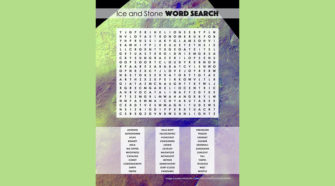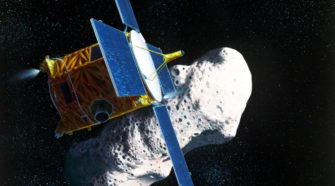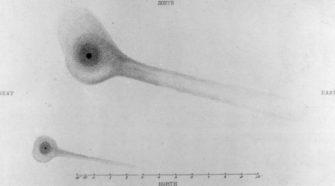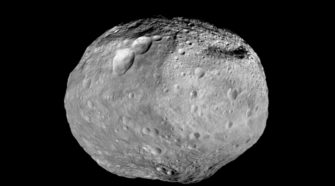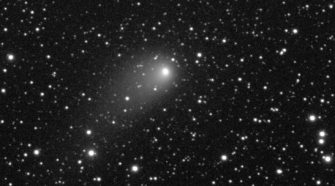Ice and Stone
Ice and Stone 2020 Word Search #2
Do your best to find these words that are scattered throughout the sixth weekly edition of Ice and Stone 2020. Words may be placed horizontally or vertically. Letters in the grid may be used in more than one word, but not all the letters in the grid have to appear in a word. More from …
This Week in History: February 16-22
FEBRUARY 17, 1930: A bright meteor appears in the sky above the midwestern U.S. and falls to the ground near Paragould, Arkansas. With a total mass of 370 kg, the Paragould meteorite, a stony chondrite, is the second-largest meteorite fall seen from and recovered in North America. FEBRUARY 17, 1996: The Near-Earth Asteroid Rendezvous (NEAR) …
Comet of the Week: 3D/Biela 1846 II
Perihelion: 1846 February 11.49, q = 0.856 AU The stories of the first two numbered periodic comets, 1P/Halley and 2P/Encke – both of which are future “Comets of the Week” – are well known. The third numbered periodic comet also has an interesting story, but unlike the earlier two, it will likely never be seen …
Special Topic: Stellar Intruders
Five weeks ago I devoted the “Special Topics” presentation to the subject of the Oort Cloud, the large spherical cloud of comets that is believed to enshroud the solar system out to distances of several tens of thousands of Astronomical Units. The comets in the Oort Cloud have been there since the forming Jupiter and …
This Week in History: February 9-15
FEBRUARY 9, 1986: During its most recent return Comet 1P/Halley passes through perihelion at a heliocentric distance of 0.587 AU. Comet Halley’s 1986 return is a future “Comet of the Week,” and its entire history is the subject of a future “Special Topics” presentation. FEBRUARY 10, 1907: August Kopff at Heidelberg Observatory in Germany discovers …
Comet of the Week: PANSTARRS C/2017 T2
Perihelion: 2020 May 4.95, q = 1.615 AU After devoting my “Comet of the Week” last week to the first comet I ever observed, it seems appropriate to devote this week’s “Comet of the Week” to the brightest comet that is currently visible in our nighttime skies, and which is easily accessible for observations, at …

